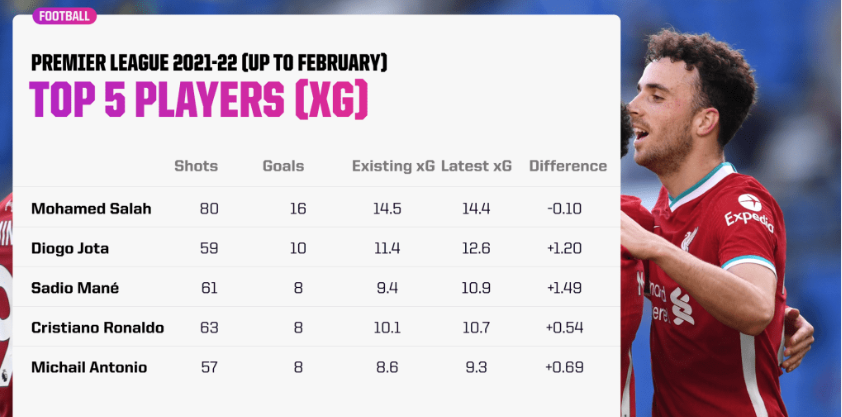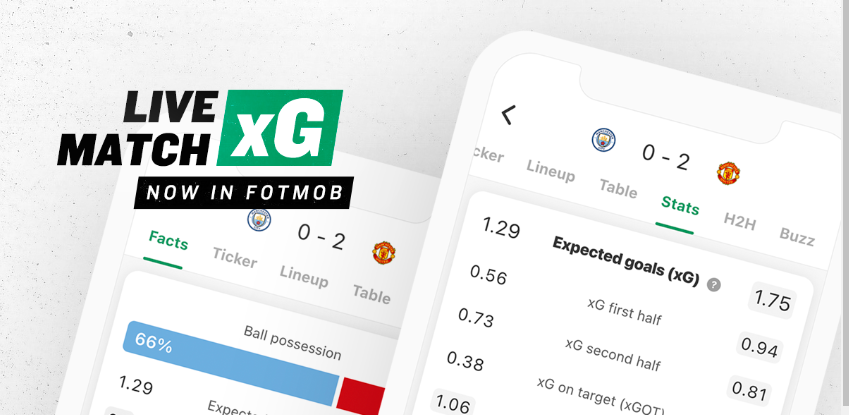- Home
- Wiki
- Betting Strategies
- xG Statistics in Football: What Are Expected Goals and How to Use Them in Sports Betting?
xG Statistics in Football: What Are Expected Goals and How to Use Them in Sports Betting?
xG, or expected goals, is a statistical indicator used in football to assess the quality of goal-scoring opportunities a team creates during a match. The xG value represents the estimated number of goals typically scored from those opportunities.
The xG rating algorithm assigns a coefficient to each shot based on factors such as distance from the goal, angle, type of shot, and other variables. These coefficients range from 0.01 to 1.00, with higher values indicating a higher probability of scoring a goal.
xG statistics are generated by various thematic services and are used to analyse team and player performance in football. By using xG data, analysts and sports bettors can gain insights into a team's attacking and defensive capabilities, identify strengths and weaknesses, and make more informed decisions.

It is important to clarify that xG statistics can be used for betting on individual and total scores in bookmakers. However, the xG indicator alone does not predict upcoming sports events. While xG can be a helpful tool for analysing past performance and identifying trends, it should be used with other factors when making betting decisions.
Expected Goal
Egil Ulltveit-Moe, a Norwegian entrepreneur and football enthusiast, is credited with developing one of the first systems for assessing the probability level of goal opportunities. Ulltveit-Moe divided the football field into a grid of 12 squares and calculated the probability of successfully finishing goal opportunities in each zone based on statistical analysis.
Later, football analysts and experts introduced the concept of "expected goals" as an improvement on Ulltveit-Moe's model. The xG calculation model assigns coefficients to various factors such as distance from the goal, angle, type of shot, and other variables to provide a more accurate estimate of the likelihood of a goal being scored from a particular shot or situation.
Analysing a match based on the xG indicator
There is no standardised algorithm for calculating xG statistics, and different services and analysts may calculate xG using different methods. However, most xG models take into account various factors that can influence the likelihood of scoring a goal, such as the number of touches on the ball before the shot, the location on the field from which the shot was taken, the distance to the opponent's goal, the individual statistics of the opponent's goalkeeper, the type of shot, and the number of opponents near the ball.
XG statistics are typically generated by programs that evaluate matches in real-time mode, using complex algorithms to calculate the xG value for each scoring opportunity. These statistics can be a valuable tool for analysing team and player performance. They provide insights into the quality of scoring opportunities created and the effectiveness of a team's offensive and defensive strategies.

In addition to the original xG metric, new metrics have emerged in football for the formation of more comprehensive xG statistics. These metrics include:
- xGG: the total xG value for the team per match;
- xGC: the goalkeeper's efficiency indicator, which measures their ability to react to dangerous moments and opponent attacks successfully;
- xGF: the ratio of expected goals to the actual results of the match;
- xGOT: expected shots hitting the post or crossbar;
- xGFH: expected goals in the first half of the match;
- xGSH: expected goals in the second half of the match;
- xGOP: expected goals without penalties, corners, and free kicks;
- xGSP: expected goals from set plays (like free kicks or corners);
- xGP: expected goals from penalties.
However, it is essential to note that the xG metric alone does not reflect the probability of successful goal opportunities in a match. Analysts and programs cannot account for hidden factors such as unforeseen substitutions, injuries and suspensions, weather conditions, team motivation, team composition changes, and the match venue.
While xG statistics can provide valuable insights into team and player performance, they should be used with other relevant information when making betting decisions or evaluating a team's performance.
Understanding the Limitations and Practical Applications of xG Statistics in Football Betting
The use of xG statistics in football betting has shown a success rate of only 30%, with bookmakers not factoring in xG when setting odds. While xG statistics are available for famous football tournaments such as the European national championships, the Premier League, and UEFA international championships, discrepancies in the calculation principles of xG and variations in xG estimations of up to 50% by different services can make the statistics unreliable.

Websites such as xG Score, Footy Stats, FiveThirtyEight and Understat provide limited free services, with access to detailed information requiring a paid subscription. While xG statistics can provide valuable insights into team and player performance, using them for real-time betting is impractical and unprofitable, as more than statistics for a single match are needed to make informed decisions.
For example, in the match "Juventus - PSG," an unsuccessful attack and strike from the right flank at 7 meters from the goal may be assigned a score of 0.7 by the xG program.
However, Juventus may have carried out two unsuccessful attacks from the left flank, and these factors may need to be accounted for in the xG score. Therefore, while xG can be a useful tool in football betting, it should be used with other relevant information to make informed decisions.
Conclusions
xG statistics is a valuable tool for analysing the quality of goal-scoring opportunities football teams create during a match. However, it is crucial to consider that xG calculations are not perfect, and factors such as unforeseen substitutions, injuries, weather conditions, team motivation, and changes in team composition can affect the outcome of a match. While xG can provide valuable insights into team and player performance, it should be used with other relevant information to make informed decisions.
Pros of the strategy:
- Provides insights into the quality of goal-scoring opportunities created by each team during a match, allowing for a more objective assessment of team and player performance.
- Helps identify areas of strength and weakness in a team's attacking and defensive strategies, allowing for more informed decisions about lineup changes and tactical adjustments.
- Can be used to evaluate the effectiveness of a team's offensive and defensive tactics over time, providing insights into which strategies are most effective against different opponents.
- Can be used to compare the performance of individual players or different teams across different matches and competitions.
- Can be used in conjunction with other relevant information, such as team form, injuries, and suspensions, to make more informed betting decisions.
Cons:
- xG statistics are often only available on paid services, limiting access for casual users;
- There is no standardised algorithm for evaluating the xG factor, leading to discrepancies and inaccuracies in xG statistics across different resources;
- The low success rate of bets based on xG statistics suggests that it should not be the sole factor considered when making betting decisions;
- xG statistics cannot account for individual match factors such as team motivation and weather conditions, which can significantly impact the outcome of a match.
While xG statistics may not be a reliable way to achieve successful results in the long run, statistics services are constantly improving their algorithms. More accurate xG evaluations may be available in the future. Using xG statistics in conjunction with other relevant information is crucial when making decisions about team and player performance.

Comments0